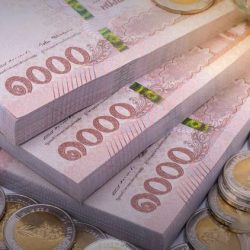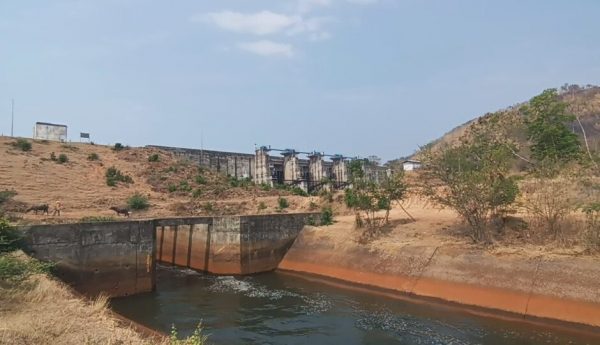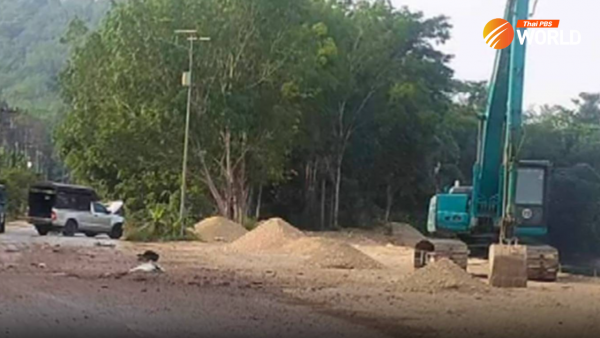Opposition leader: The cog of Thai democracy that has shuddered to a halt

Thailand’s new prime minister and his Cabinet have officially begun work after delivering their policy statement in Parliament. However, the country will be deprived of an opposition leader for the foreseeable future, as potential candidates remain tied up in legal issues.
The post of opposition leader was first enshrined in Thailand half a century ago via the constitution of 1974. It stated that the post would go by royal command to the House of Representatives’ largest political party with no Cabinet seats but at least one-fifth of all MP seats.
Various changes were made to that clause in the constitutions of 1978, 1991, 1997, 2007, and 2017.
The current charter (2017) states that the House opposition leader shall be an MP who leads the political party with the largest number of opposition MPs, none of whom hold the post of government minister, House speaker, or deputy speaker.
Legal experts say the clause prevents the largest opposition party, Move Forward, from taking the opposition leader’s post as its MP Padipat Suntiphada is a deputy House speaker. Furthermore, Move Forward leader Pita Limjaroenrat has been suspended as an MP pending a Constitutional Court case regarding his qualifications.
Meanwhile, the Democrats, the second largest opposition party, remain leaderless after Jurin Laksanawisit stepped down following a poor performance in the May 14 election.
More power for opposition leader
This Constitution expands the power of the opposition leader beyond just scrutinizing the government.
The opposition leader may ask the Parliament president to call a closed-doors meeting between Parliament and the Cabinet “in cases involving important issues of national security, safety or the economy”.
The opposition leader also sits on the committee that selects Constitutional Court judges and members of independent organizations.
In addition, he/she sits on the committee tasked with adjudicating disputes between the Cabinet and parliamentarians on draft bills for national reform under the National Strategy.
9 previous postholders
Thailand has seen nine opposition leaders since the 1974 constitution first recognized the position. The country’s first opposition leader was MR Seni Pramoj, who was also Democrat Party leader at the time. He served from March 1975 until the House was dissolved in January 1976.
After democracy was suspended for seven years during military rule between 1976 and 1983, Chart Thai Party leader Pramarn Adireksarn became opposition leader in May 1983 following the general election a month earlier, serving until the House dissolution in May 1986. Pramarn assumed the same post for a second time in October 1992 and served until May 1994, when he stepped down as the leader of his party.
General Chavalit Yongchaiyudh, chief of the New Aspiration Party, became the third opposition leader in May 1992 but served only one month before the House was dissolved. He was, however, appointed to the post three more times – serving from May 1997 to June 1998, September 1998 to April 1999, and May 1999 to May 2000. Chavalit holds the record for appointments as opposition leader, having served four times over 13 years.
Chart Thai leader Banharn Silpa-archa was the fourth politician to take the role, serving between May 1994 and May 1995.
Position dominated by Democrat Party
Democrat leader Chuan Leekpai became the fifth opposition leader in August 1995 and served until the House dissolution in September 1996. He was appointed opposition leader two more times – serving between December 1996 and May 1997 and again between March 2001 and May 2003.
Chuan was the second Democrat boss to lead the opposition after Seni. However, two more were to follow in his footsteps – Banyat Bantadtan and Abhisit Vejjajiva.
Banyat served as opposition leader between May 2003 and January 2005. Abhisit served no less than three times – April 2005 to February 2006, February to December 2008, and September 2011 to December 2013.
Among Thailand’s nine opposition leaders so far, four came from the country’s oldest party. And the Democrats have held the post for a total of 10 years and six months – more than any other party – during a period that saw five military coups and years of military rule.
Pheu Thai Party leader Sompong Amornvivat became the eighth opposition leader, his two terms lasting from August 2019 to September 2020 and from December 2020 to October 2021, when he stepped down as party leader.
His successor as Pheu Thai boss, Cholnan Srikaew, took over from Sompong as opposition leader, serving from December 2021 until the House dissolution in March this year.
By Thai PBS World’s Political Desk






